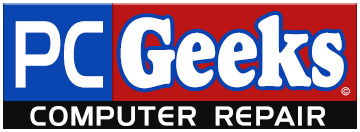Data Recovery for a Crashed Hard Drive: What to Know
In the best of circumstances, a hard drive failure is a minor inconvenience. When the drive holds the only copy of personal photos, crucial business documents, or other important data, a sudden crash can have catastrophic consequences.
The good news is that qualified data recovery experts can retrieve files from a crashed hard drive in most situations — provided that computer users take appropriate actions immediately after the failure.

Why Hard Drives Crash
Hard drives have a number of sensitive mechanical and electronic components that can sustain damage from physical shocks, electrical issues, and gradual wear. Given enough time, these components stop functioning, causing a “crash” that prevents the computer user from accessing data. Some common symptoms that indicate a physical hard drive failure include:
- A clicking or whirring sound
- Corrupt, unreadable, or disappearing files
- Extremely slow computer performance
- Failure to boot the computer’s operating system
Hard drives have an average lifespan of 3-5 years, according to a study from online backup company Backblaze. That study analyzed server hard drives, and many consumer drives operate for much longer without major issues.
Even so, every hard drive eventually fails and needs to be replaced. There’s no way to completely prevent hard drive crashes, but subjecting the drive to poor operating conditions (for instance, excessive heat or an inconsistent electrical supply) could raise the chances of a premature failure.
Steps to Take After a Hard Drive Failure
Operating a failed hard drive can cause permanent data loss. A hard drive reads and writes data with an assembly of magnetic heads that float just above the surface of a set of platters. When a failure occurs, the heads can come into contact with the platters, damaging the thin layer of magnetic material that stores data.
If your drive isn’t operating normally, keep it powered off until you’re able to get a professional diagnosis. Running the drive for even a few seconds can greatly reduce the chances of a full recovery. Unless you have significant experience with computer repair, you shouldn’t remove the HDD from your computer. Leave it in place and contact a professional.
Finding a Qualified Data Recovery Expert
Data recovery requires substantial expertise, as technicians may need to replace damaged components or rewrite firmware to restore the device to a functional state. A qualified technician will be able to temporarily repair the drive, copy the important files, and return the data to the user, but a failed attempt could make the damage worse. Most computer repair shops don’t have the necessary tools to offer professional data recovery services.
PC Geeks provides safe onsite service for many data loss issues, and we partner with a dedicated firm to offer clean room data recovery for your crashed hard drive, solid-state drives, and other storage devices. When data is critically important, we offer an alternative to permanent data loss. Contact us today to discuss your options or to schedule an evaluation.
